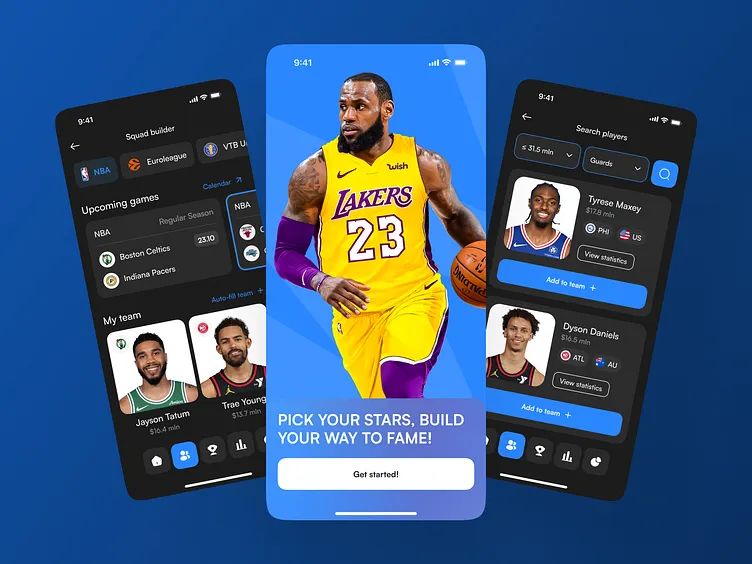The fantasy sports industry is booming, with global revenues expected to surpass $48 billion by 2027. Fueled by increasing internet penetration, widespread smartphone adoption, and the popularity of sports leagues across the globe, fantasy sports apps have become a profitable venture for startups and enterprises alike. However, building a great app is just one part of the equation—monetizing it effectively is equally important.
As we move into 2025, monetization strategies are evolving alongside user behavior and technological advancements. If you’re planning to invest in fantasy sports app development services, understanding the top monetization models can help ensure long-term profitability. In this blog, we’ll dive deep into the most effective monetization models for fantasy sports apps in 2025 and how you can implement them strategically.
1. Freemium Model with In-App Purchases
The freemium model continues to dominate the fantasy sports space, allowing users to access basic features for free while paying for advanced capabilities. This model works well because it removes the initial barrier to entry and builds a loyal user base.
Popular In-App Purchases Include:
- Access to advanced stats and analytics
- Entry into high-stakes contests
- Power-ups or boosters for team selection
- Real-time alerts and expert suggestions
Offering these premium services can significantly enhance the user experience while generating recurring revenue. To succeed with this model, you need to strike a balance between free and paid features—users should feel the value of upgrading without being forced to do so.
2. Entry Fee Contests (Pay-to-Play Model)
This is one of the most lucrative models, especially in regions where real-money gaming is legal. Users pay an entry fee to join contests, and the prize pool is distributed among winners based on their performance. The app retains a small percentage (typically 10-20%) as a service fee or rake.
Key Benefits:
- High engagement and repeat participation
- Immediate revenue generation
- Builds competitive spirit among users
This model requires robust legal compliance and secure payment gateway integration. If you’re planning to adopt this approach, it’s crucial to hire dedicated developers who understand the financial and legal complexities of building real-money apps.
3. Subscription-Based Model
Another growing trend in 2025 is the subscription model. Here, users pay a monthly or annual fee to access premium features, ad-free experiences, or exclusive contests.
Typical Subscription Offers:
- Unlimited team creations
- Access to private or expert leagues
- Personalized match recommendations
- Early access to new features
The recurring revenue from subscriptions provides financial stability and can help fund long-term feature development. A well-executed subscription model can transform your app into a premium product that appeals to serious fantasy sports enthusiasts.
4. Advertising and Sponsorships
In-app advertising remains a strong source of revenue for fantasy sports platforms with a large user base. By showing relevant ads during breaks, loading screens, or game transitions, apps can monetize user attention without directly charging them.
Popular Ad Formats:
- Banner ads
- Interstitial ads
- Video ads (especially rewarded ads)
- Native content ads
Additionally, partnerships with sports brands, equipment manufacturers, and media companies can lead to lucrative sponsorship deals. For example, you could feature sponsored leaderboards, branded contests, or product placements within the app.
To optimize this model, fantasy sports app development services must focus on performance-based ad integration that doesn’t disrupt the user experience.
5. Affiliate Marketing and Merchandise Sales
Fantasy sports apps have a highly engaged and sports-savvy audience—perfect for affiliate marketing. Promoting third-party products like jerseys, sports gear, or even tickets to live events can generate additional revenue.
Monetization via:
- Affiliate links to e-commerce platforms
- Co-branded merchandise within the app
- Commission on ticket sales for sports events
You can also launch your own merchandise line and sell it directly through the app. Integrating a merchandise store requires seamless UX/UI design and secure e-commerce capabilities, which is why it’s important to hire dedicated developers with experience in both fantasy platforms and online retail.
6. White Labeling and Licensing
As fantasy sports gain popularity in niche markets (like eSports, college leagues, or regional sports), your app could be licensed to smaller operators under a white-label model. This involves offering your app’s technology and infrastructure to others who can rebrand it as their own.
Advantages:
- One-time or recurring licensing fees
- Broader reach without operational overhead
- Leverages your existing technology stack
This B2B revenue model is ideal for scaling without significantly increasing customer acquisition costs. Businesses offering fantasy sports app development services often package white-label solutions as part of their offerings, enabling clients to launch faster.
7. Token-Based Economy (Blockchain Integration)
The integration of blockchain technology into fantasy sports apps is on the rise in 2025. Some platforms now use digital tokens or cryptocurrencies for transactions, prize distributions, or even trading fantasy player cards.
Token Utility:
- Entry fees and reward distributions
- Loyalty rewards and gamification
- NFT-based player assets for collection or trading
This model offers increased transparency and adds a layer of gamification that appeals to tech-savvy users. Implementing such a system requires deep technical expertise, making it essential to hire dedicated developers who specialize in blockchain and smart contracts.
8. Data Analytics and API Monetization
With vast amounts of player and match data collected daily, fantasy sports apps are sitting on a goldmine of analytics. In 2025, some platforms are monetizing this data by offering it through APIs or analytics dashboards to third-party developers, betting firms, or sports research organizations.
Potential Use Cases:
- Data subscriptions for sports blogs and analysts
- B2B API integration with sports betting platforms
- Insights for broadcasters and sports marketing agencies
This advanced monetization stream requires not just backend development but also data security, compliance, and seamless API documentation. A reliable fantasy sports app development services provider can help you architect these capabilities.
9. Gamified Loyalty Programs
Introducing a points-based loyalty system can encourage more user engagement while creating monetization opportunities. Users can earn loyalty points for actions like daily logins, contest participation, or referrals, and redeem them for in-app perks, merchandise, or discounts.
Rewards Can Include:
- Free contest entries
- Discounted subscription rates
- Access to exclusive events or content
Such gamification enhances user retention and increases their lifetime value, making it a smart complementary strategy to any primary monetization model.
10. Hybrid Monetization Models
In 2025, many successful apps are not relying on a single revenue model. Instead, they’re combining multiple strategies to maximize income and reduce risk. A hybrid approach—such as combining subscriptions, ads, and entry fees—ensures consistent revenue from both casual and hardcore users.
A flexible backend and modular app architecture are key to successfully implementing hybrid models. Whether you’re launching a new app or upgrading an existing one, you’ll need to hire dedicated developers who can build scalable and adaptable platforms.
Conclusion
The fantasy sports industry continues to be a dynamic and profitable digital space. But to succeed in 2025, developers and entrepreneurs must think beyond the game and focus on diversified monetization models. From freemium and subscriptions to blockchain integration and affiliate marketing, there’s a vast range of options available.
Partnering with an experienced team that provides fantasy sports app development services can make the difference between a profitable platform and one that struggles to break even. It’s also crucial to hire dedicated developers who understand not just code but also user behavior, sports culture, and monetization dynamics.
By choosing the right combination of models and continuously innovating based on user data and market trends, your fantasy sports app can thrive both in user engagement and financial performance.

